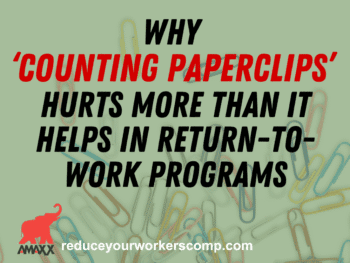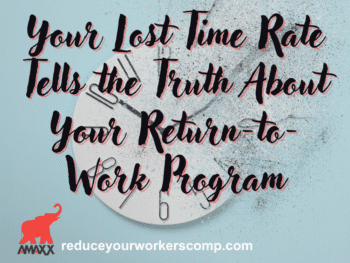Open-ended transitional duty policies can be problematic and should have a start point and an end point. For example, transitional duty positions should go no longer than 6 months without a special extension or waiver of the length of the assignment. HR, Legal and Risk Management should work together on the Transitional Duty Policy. Focusing on gradually increasing capacity, at some point the TD job should end. Each company will have a different length depending on circumstances, but 6 months is about average for what most companies have.
Three reasons your TD Policy should have an end-date:
1- The unions may have a problem with transitional duty assignments if they are not temporary because they will argue that you have created a new position which is not allowed by the labor agreement. For example, with a part-time employee whose transitional duty assignment lasts for over a year, it is difficult to argue that that is not “a job” if someone has performed the task for over a year.
2- For ADA purposes, it is difficult to argue the company could not create a new job as an accommodation with those duties if they just let the person work under those conditions for over a year.
3- And, there may be an issue with health insurance being required to be paid during a longer time frame. In some states, an employer is obligated to provide health insurance if a TD job lasts for a long time.
For more cost-saving tips go to WC Cost Reduction Tips.
Show the REAL cost of workers’ comp with the Real Cost Calculator.
Workers’ Comp Kit® is a web-based online Assessment, Benchmarking and Cost Containment system for employers. It provides all the materials needed to reduce your costs significantly in 85% less time than if you designed a program from scratch.
Do not use this information without independent verification. All state laws are different. Consult with your corporate legal counsel before implementing any cost containment programs.
©2008 Amaxx Risk Solutions, Inc. All rights reserved under International Copyright Law. If you would like permission to reprint this material, contact Info@WorkersCompKit.com



























